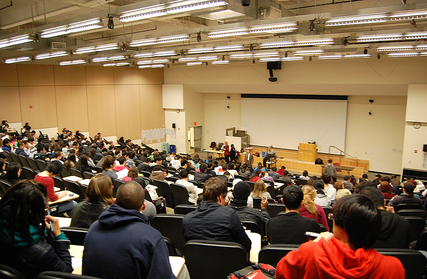 by Avik Chatterjee, MD John had gotten out of prison just a couple months before, but already felt that he was losing muscle and gaining fat. In prison, he felt he had a routine, and could lift weights and control his diet. As a homeless man, he struggled on both fronts. “Doc, I’m trying to be good, you know, low carb and stuff, but what are some other ways to eat better, you know, like Paleo?” Obesity and obesity related disease have created a tremendous burden on the health care system, and in my practice with homeless patients, I talk about obesity, weight loss, nutrition, and exercise all the time. The sheer variety of fad diets is dizzying, and countless people, even homeless men like John, are considering trying them. So one would think that medical school and residency would be full of teaching about nutrition. You would be wrong. I barely remember my nutrition lectures from first and second year of medical school, but I do remember niacin deficiency playing a prominent role (though I’ve never seen a case of pellagra). In the clinical years and in residency, we had no teaching about popular diets, no systematic training on how to help patients decide on a diet and weight loss plan, and certainly no teaching about food systems and food policy and how they may be causing -- or preventing -- weight gain.
My experience is not unique. According to Kohlmeier and colleagues, in a 2010 survey of medical schools, only 25% even had dedicated nutrition courses, and only 27% met the National Academy of Sciences recommendation of 25 hours of nutrition education for medical students (down from 38% in 2004). And as more and more material needs to be packed into first two years of medical school, the problem is getting worse. At the 2015 Experimental Biology conference, Dr. Kohlmeier presented updated survey data showing that the number of hours of nutrition education at medical schools is stagnant or decreasing. And, at that meeting, we heard an alarming anecdote. At Harvard Medical School, which is re-vamping its curriculum, the nutrition course is being shortened from a semester to two or three days The nutrition educators (mostly physicians) who attended Dr. Kohlmeier’s session had some ideas as to why nutrition education applicable to patients is absent from many curricula. The main argument boiled down to the fact that students and medical schools value topics that are tested on the Step 1 and 2 exams. Hence, pellagra rather than Paleo. This glaring omission in medical education leaves countless doctors—and patients—fending for themselves. To some extent, this nutrition education deficiency reflects the state of the science on specific types of diet and weight loss. The recent landmark randomized controlled trial of the Mediterranean diet in 7447 middle-aged and elderly people (aged 55-80) in Spain demonstrated fewer heart attacks, strokes and deaths due to cardiovascular disease. But there have been few similar studies testing this and other diets in different populations, in different age groups, and for different purposes (weight loss or maintaining muscle mass, for example). Because the science can change so quickly, doctors have to read and study on their own after medical school. But given the burden of obesity and frequency with which every type of physician encounters it, nutrition education should become a more fundamental part of medical training. To this end: 1) Medical schools and residency programs should commit to meeting or exceeding existing guidelines for nutrition education. 2) Licensure exams should incorporate more questions about nutrition in clinical practice. 3) Scientist studying nutrition should pursue (and funding agencies should support) evaluating popular diet and exercise practices that clinicians encounter regularly. Patients like John will continue try different diet and exercise strategies to meet their varied goals. It would be helpful if more physicians received training to guide them.
2 Comments
amalendu chatterjee
5/7/2015 09:48:15 am
I agree with your ideas. should there be distinctive course outlines - one for nutritionists and another for medical students?
Reply
Jason Block
5/9/2015 05:55:28 am
Could agree more. In general, education regarding evidence based behavior change counseling is missing ind medical school. Should be front and center, alongside pathophys. It's as important.
Reply
Your comment will be posted after it is approved.
Leave a Reply. |
©2017 WeighingInBlog. All rights reserved. 401 Park Drive, Boston, MA




 RSS Feed
RSS Feed

